MLZ is a cooperation between:
 > Technische Universität München
> Technische Universität München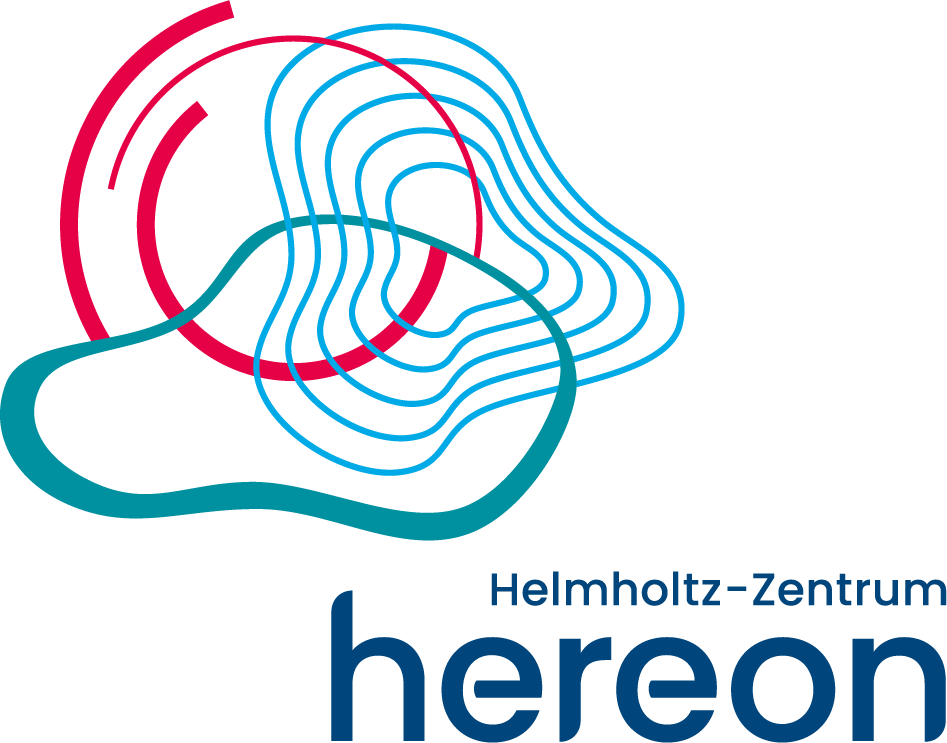 > Helmholtz-Zentrum Hereon
> Helmholtz-Zentrum Hereon
 > Forschungszentrum Jülich
> Forschungszentrum Jülich
MLZ is a member of:
 > LENS
> LENS > ERF-AISBL
> ERF-AISBL
MLZ on social media:

MLZ (eng)
Lichtenbergstr.1
85748 Garching
Between the cultures and neutron sources
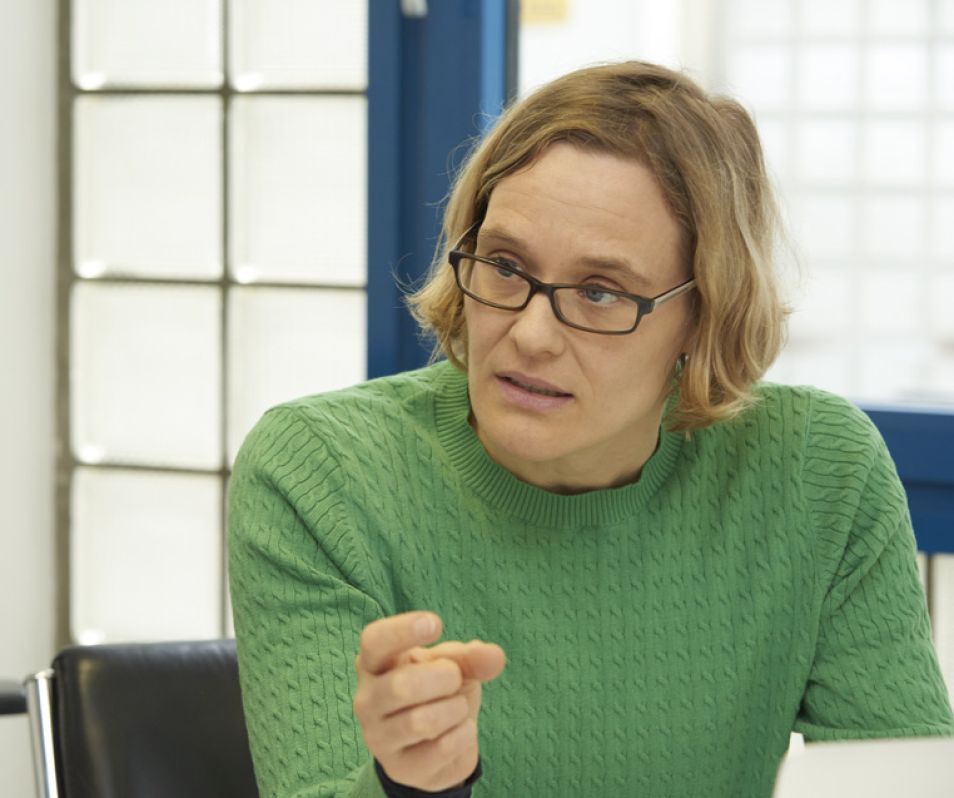
The lead scientist Dr. Pascale Deen is part of a German-French team building a cold chopper spectrometer (CSPEC) at the European Spallation Source (ESS). The world class instrument will measure the time of flight of neutrons scattered by matter and is being developed by scientists from the FRM II and the LLB in France. Since 2016 Deen therefore comes to Garching once a month and joins her team on site. © W. Schürmann / TUM
Born in the Netherlands physicist Pascale Deen now lives in Lund, Sweden, and she does not have to think long about what she appreciates at the FRM II. “Normally, the weather is much nicer here in the winter”, she replies immediately and laughs when looking out of the window of the Campus Café in Garching: Bavarian winter weather at its worst; cold, cloudy and rainy.
“Seriously, I really appreciate the expertise here. There is more than 30 years of experience at FRM, so you can just go to people and ask questions. It´s a functioning facility, close to a University which means that students are often involved in many of the research projects. The students force you to explain in detail what you are doing.”
According to Deen this is very important and helpful for research institutes, especially regarding the scientific communication.
“I work with many different people from different cultures, both with scientists and engineers. We often speak totally different languages, whether this is between people from different nations or different disciplines. Amongst scientists it is easy to speak, we can use our own language. However the communication with engineers can sometimes be challenging, because of our different backgrounds. The close contact to students forces us to constantly explain our work and therefore facilitates the internal and external communication.”
“We need to preserve research reactors”
Deen works at the European Spallation Source (ESS) in Lund. The ESS is under construction and is expected to start in 2023.
“The ESS will be ideal for very unique and special experiments. But very important general and fundamental research will still be performed at research reactors like the FRM II. This is vital and gives us important findings about materials behavior. Many aspects of the work requires neutron scattering to extract the required information, so we need to preserve research reactors.”
Her eyes show her enthusiasm for her work that appears to be more of a vocation than an occupation for Deen.
“Reactors have a bad press, but are necessary for materials science research which is very exciting and it´s a fun life. I went to the ESS to build an instrument and now I´m working with people from many different cultures, with brand new technologies and the best instruments in the world.”
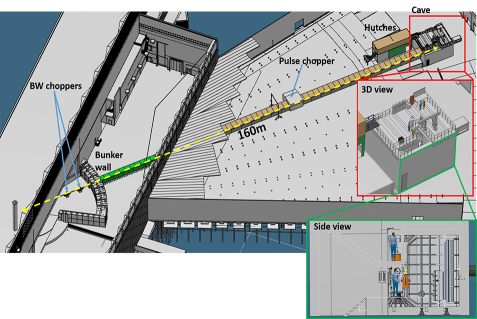
The hot commissioning of the 160m long cold chopper spectrometer is envisaged early 2022. © FRM II / TUM
As the lead scientist Deen is part of an international, cross-institutional team building a cold chopper spectrometer (CSPEC) at the ESS. The colleagues at the the FRM II will shortly be developing the guides and focusing on finalising the technical drawings for the vacuum housing which includes the integration of the chopper cascade. The other part of the team at the Laboratoire Léon Brillouin (LLB) is focusing on the secondary spectrometer, the detector tank and the integration of the detectors within this tank. “Our next steps include detailed shielding calculations to focus on the shielding concepts. The hot commissioning is envisaged early 2022”, Deen tells.
“Science is tough, but very collegial – we work togehter very closely”
The physicist travels much for her work, jets between Lund, the United States and Germany and joins meetings around the world. With her husband, who is a scientist, too, she therefore regularly needs to check the family calendar.
“It is tough but we really believe in what we´re doing. And I think my work also gives many opportunities to my children. They are always curious about my research and ask many questions, so I tell them how we create neutrons and make them travel.” It puts a big smile on the physicist´s face when talking about her kids. “I think children understand much more than we often expect.” With a twinkle in her eye Deen remembers her own childhood. “I was a little bit of a nerd. I found libraries fascinating and I still love them. I liked the difficult things and always tried to solve every problem, even if I couldn´t.”
Deen kept alive her curiosity and thirst for knowledge, made her PhD and is passionate about her scientific life, even if it´s challenging some times.
“Science is very tough. Your ego is often bashed, because science involves a setting where people constantly question your results. But the work is very collegial and supportive, too, and we work together very closely. If you show enthusiasm, scientists are like a nice little family.”
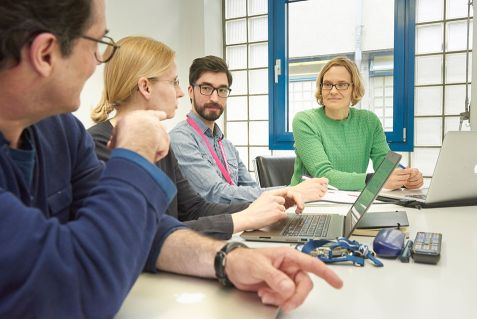
Meeting of the CSPEC team at the FRM II. From left: Stephane Longeville, scientific coordinator from LLB in France; Wiebke Lohstroh, scientific coordinator from FRM II; Luis Fernando Loaiza Martinez, engineer from FRM II; Pascale Deen, lead scientist from ESS in Sweden. © W. Schürmann / TUM
“ I want to show that it is possible to have a family and a scientific career”
The 41-year-old gained working experiences in Sweden, France and Germany. Regarding women in science, the conditions are not the same everywhere.
“There are big differences, because the cultures are very different. But it is getting much better. I want to show that it´s possible to have it all, a family and a scientific career. You have to work hard, but it´s possible. I think you should not be defined by what culture tells you to do or not to do. As a child I lived in different countries, so I never experienced a single culture and I never made decisions because I´ve been told to do so by my social environment. But, no matter what you do, it should be enjoyable. Besides, in physics, people judge you about what you know and not on your sex.”
Equally, the acceptance of research sites itself are different, Deen tells.
“In Sweden there is a huge enthusiasm for the ESS. Of course, people are concerned about radioactivity, but not so much when compared to Germany. People are very enthusiastic about the best facility coming to Sweden, because it also brings new industries and money to the region. We have many groups visiting the site and many curious school kids, which is fantastic. The interest for the ESS is widespread amongst all people from very differing backgrounds.”
Deen puts her hands around her cup of hot black tea with milk – a remnant of her childhood in Ireland – and, with some humor, adds another difference between Lund and Garching: “The food.” Admittedly, with her dad as a restaurant owner, the canteen cannot compete.
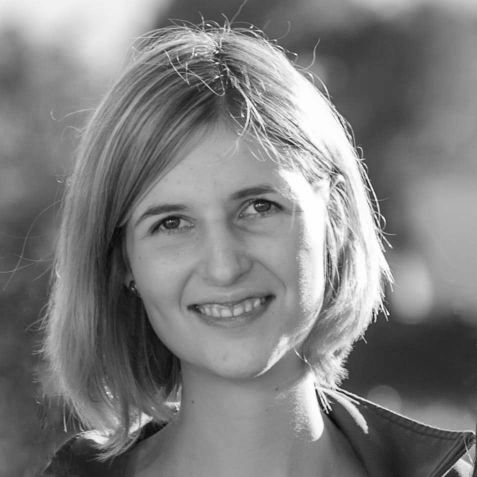
Teresa Kiechle
Press & Public Relations
FRM II
MLZ is a cooperation between:
 > Technische Universität München
> Technische Universität München > Helmholtz-Zentrum Hereon
> Helmholtz-Zentrum Hereon
 > Forschungszentrum Jülich
> Forschungszentrum Jülich
MLZ is a member of:
 > LENS
> LENS > ERF-AISBL
> ERF-AISBL
MLZ on social media:


